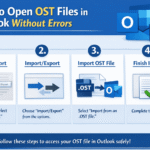A Guide On How To Report Your Crypto Mining Taxes
The days when virtual currency was considered a niche investment are gone. In recent years, things have changed drastically, and cryptocurrency transactions have become common. Investors and traders at every level are accessing crypto as a medium of exchange for services and goods.
If you have obtained cryptocurrency through crypto mining, you must consider how crypto mining taxes. Now, many countries levy tax on the income received from crypto mining. So, knowing how to report your crypto mining tax is vital to avoid unnecessary troubles.
What do crypto mining taxes mean?
Crypto mining involves generating blocks in the blockchain by verifying specific transactions and obtaining the newly generated crypto as a reward for your work. The crypto you receive for mining will be considered your gross income. The IRS also classifies crypto rewards as earned income. So, you need to pay a tax similar to your income tax.
Miners report the new cryptocurrency’s FMV (fair market value) at the time it was generated as the earned income. It is taxed at 10 37% based on filing status and gross revenue. You will find specific differences in crypto taxation based on where you mine the crypto – at home or in your office. In addition, you need to confirm whether you are a commercial or hobby miner for the tax implications of crypto mining.
Crypto mining – Commercial vs. Hobby
You can utilize different forms to report your crypto mining income, depending on whether you mined for business or a hobby. Hobby miners are crypto enthusiasts who participate in mining to support the development of blockchain networks in a non-commercial manner.
They commonly mine crypto on a small scale. Hobby mining tax implications are that coins generated through mining are defined as capital acquisition instead of income, and equipment and operational costs are allocated as the cost of acquisition of coins generated via mining.
Commercial crypto mining is performed on a large scale. It allows miners to invest thousands of dollars in dedicated hardware and equipment in data centers, and operational costs, as well as losses, are tax-deductible.
Additionally, the coins generated via mining are defined as business income. You can only report the profits as the business income when you mine for business by IRS standards. For that, you need to submit proof of mining for business.
How to report crypto mining taxes
The IRS audits you to determine whether it is mined for business or a hobby. Then, you need to provide all the supporting documents. When the IRS deems your mining activity as a hobby, the income generated is considered hobby income. You can report those incomes on Schedule 1 as “Other Income.”
You must report the fair market value of the crypto you mined on Schedule C for business income. Additionally, you need to pay a 15.3% self-employment tax. You can even deduct some business expenses and capital losses from prior years if you file the taxes for this year. Try to keep records of your crypto mining to calculate the tax easily.
Conclusion
You will now understand the crypto mining tax and how to report it properly to avoid issues. If you need any assistance regarding taxation, you can reach out to binocs. A team of professionals will handle your crypto taxation properly.

















